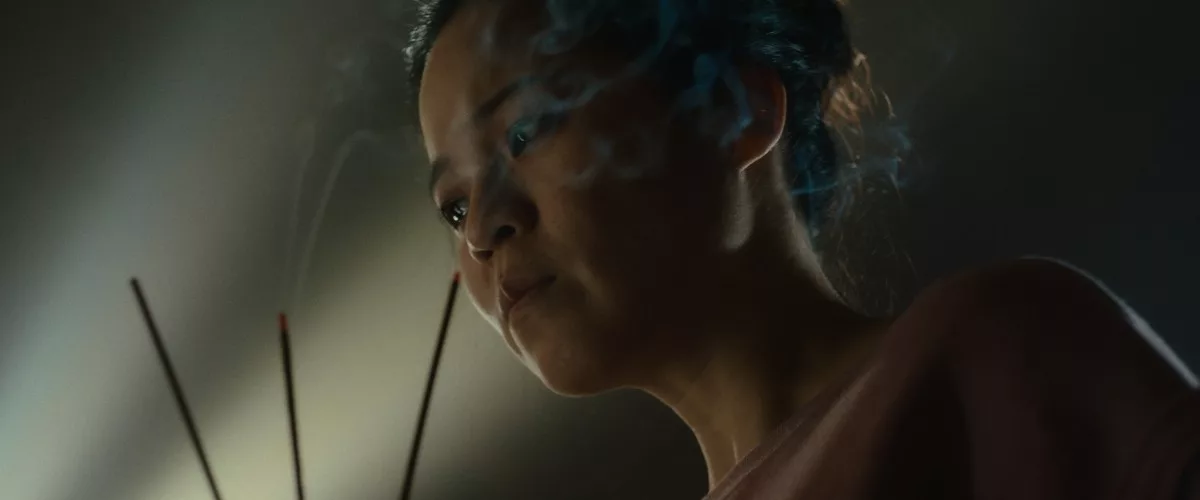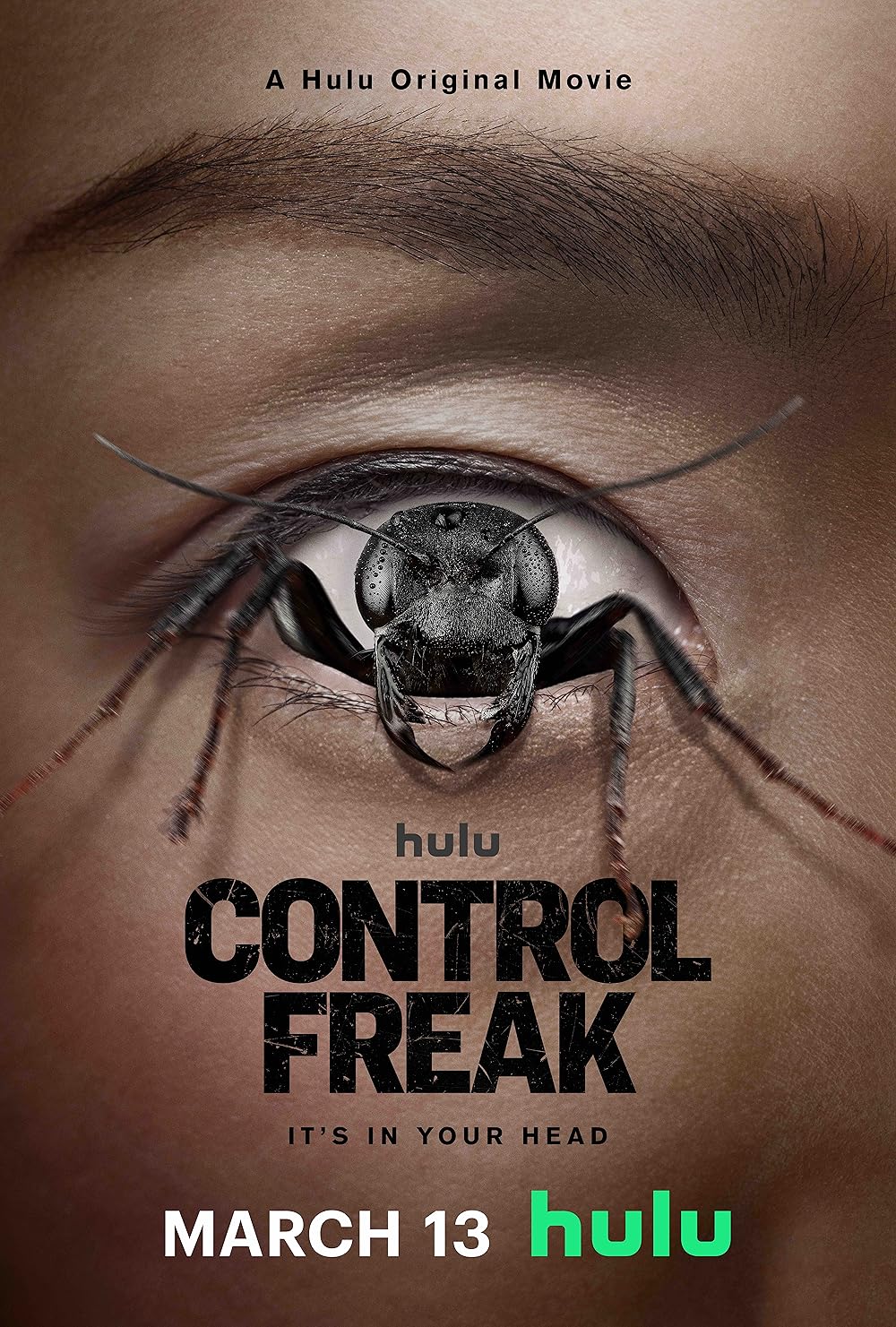“Control Freak” is a film so raw, messy, and sincere that it seems to have been torn from the bodies of the people who made it. Written and directed by Shal Ngo, it’s about an influencer named Valerie (Kelly Marie Tran) whose books and seminars mix pop psychology, inspirational slogans, and vague personal confessions, and is on the verge of mainstream stardom when she develops an itch on the back of her head that won’t go away. No matter how hard Valerie scratches, the itch gets worse—and more disgusting.
“Control Freak” has gotten mixed reviews from my colleagues, but I found it hypnotic and think about it often. There have also been a few times when I sort of wished I hadn’t seen it, because of the way certain scenes weaponize everyday images and situations and make it impossible for you to experience them without thinking about “Control Freak.” It’s fair to say that, in my mind at least, it owns the itchy scalp for all time, in the same way that “Jaws” owns the beach and “Psycho” the shower.
Valerie’s attempt to cure the itch turns the film into a journey of self-discovery, one that operates on multiple levels and intertwines several filmmaking modes. “Control Freak” is a psychodrama about families and relationships; an analysis of people of Vietnamese heritage assimilating (or not assimilating) into mainstream U.S. culture; a story of suppressed personal and national traumas manifesting in daily life; and a “Rosemary’s Baby”-esque thriller about a woman who knows something is dangerously wrong with her body but can’t get anyone to take her seriously.
There are also intimations that Valerie’s troubles might be caused by a demon known as Sanshi (from Chinese folklore) that entered the extended family’s life via Valerie’s father Sang (Toan Le), a former South Vietnamese infantryman during the war who lives in the same city as his daughter and has become a Buddhist monk and pacifist and licked his drug problem (or so he says). It’s through the latter strand that “Control Freak” connects with violent supernatural psychodramas like “The Exorcist,” “The Entity” and “The Manitou.” But there’s a key difference: Ngo’s script tactically declines to say for certain whether the demon is a metaphor for various things or a monster that exists outside of the main character’s head. Even moments when Valerie sees traces of the monster’s existence in photographs might be interpreted as figurative, because they’re from her point-of-view.
There’s also a fair amount of discussion of mental illness being generationally transferred within Valerie’s family, the locus of which was Valerie’s late mother, but here, too, the movie doesn’t adopt an either/or approach—i.e, either the demon is a metaphor for mental illness, as in “the demons in my head,” or it’s an actual monster. The mental illness is real. The demon—a hideous triumph of costuming, puppetry and CGI, with Xenomorph nails and skittering tentacles—sure looks real.
There have been complaints that the film is “repetitive,” but I didn’t see it that way. What I saw was an escalation of Valerie’s erratic behavior and increasing desperation that her condition, whatever it actually is, has surged into the forefront of her life and is systematically destroying everything she’s built, including her marriage to her creative partner Robbie (Miles Robbins), the business and media relationships she’s built up, and the bond with her audience, which projects their own problems onto Valerie (as she invites them to do) and sees her as a catalyst for managing their problems and getting control of their own lives. In this sense, the structure of “Control Freak” is reminiscent of a classic addiction or mental health narrative, in which the protagonist must take the initiative in diagnosing and dealing with what’s ailing them and take steps (with help from others) to reclaim control of their life.
There’s no denying, however, that this is not in any sense a neat or orderly movie. “Control Freak” staggers through its increasingly surreal story like a disoriented person trying to get to a bed before they pass out. I don’t think it’s the kind of movie that can be evaluated by the commercial mainstream screenplay workshop language like “the third act needs work” or “it’s too long” or “things are set up but not satisfyingly paid off,” etc. It’s a clearly personal film in which the writer-director appears to have an eerie mind meld with his lead actress that allows her to become a vessel for expressing his inchoate obsessions and anxieties (and vice-versa). (Tran is brilliant here, giving a performance that’s perfectly modulated no matter how upsetting or bizarre things get; there are a couple of scenes that made me imagine Gena Rowlands in a John Cassavetes domestic drama, though covered in gore and goo.)
In a strange, dark way, “Control Freak” could be characterized as self-help work of a different sort. Rather than offering thought prompts and action memos, it offers something that’s more akin to a vessel containing shards of many different types of mirrors—and a lot of blood and guts. I suspect that the more open viewers are to the idea of just staring into the vessel and allowing their minds to roam, the more they’ll like it.
Now on Hulu.




















